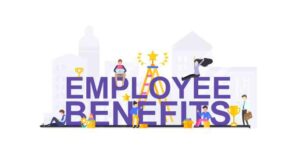Bonus Programs
Bonuses are one of the most common and effective ways to reward employees. Companies can offer annual performance-based bonuses or specific bonuses tied to achieving certain goals, like hitting sales targets, completing projects early, or improving customer satisfaction. Financial rewards can serve as a strong motivator, encouraging employees to push themselves and stay focused on delivering results. The key is to tie the bonus to clear and achievable performance metrics so that employees know exactly what they need to do to earn them.
Recognition and Award Programs
Sometimes, a simple “thank you” or public acknowledgment can go a long way. Formal recognition programs, such as “Employee of the Month,” “Star Performer,” or annual award ceremonies, make employees feel valued and appreciated. This recognition can also be done informally during meetings, newsletters, or through social media shout-outs. Employees who feel appreciated are more likely to stay loyal and put in extra effort because they know their work is noticed and valued by their peers and managers.
Profit-Sharing
Profit-sharing allows employees to receive a portion of the company’s profits, aligning their interests with the company’s success. This can either come as a yearly bonus or be structured through stock options. By sharing the financial success of the company, employees are motivated to think long-term and work harder toward the company’s overall growth and profitability. When employees feel they have a direct stake in the company’s fortunes, they are more likely to stay engaged and invested in its success.
Extra Paid Time Off (PTO)
Offering additional vacation days as a reward for good performance is a great way to incentivize employees. For example, employees who meet specific targets could earn extra days off to spend with their families, relax, or travel. This kind of reward contributes to better work-life balance, reduces burnout, and helps employees recharge, which can lead to increased productivity and creativity when they return to work.
Wellness Incentives
Promoting employee wellness is becoming increasingly popular. Companies can offer incentives like gym memberships, yoga classes, health check-ups, or wellness retreats. These benefits show that the company cares about the health and well-being of its employees, not just their performance at work. By encouraging healthy habits, wellness programs can also reduce stress, lower absenteeism, and boost overall productivity, creating a healthier and more motivated workforce.
Flexible Working Hours
Flexibility in working hours or remote work opportunities is highly valued by employees, especially in today’s digital age. Offering flexible schedules as an incentive—such as the ability to start later, leave early, or work remotely—helps employees manage their personal lives better while staying productive. This reward shows trust in employees to manage their time effectively and can improve job satisfaction, loyalty, and overall engagement.
Professional Development Opportunities

Employees often appreciate opportunities to grow and advance their careers. Providing access to training programs, online courses, conferences, or workshops can be a powerful incentive. These programs allow employees to build new skills, stay updated with industry trends, and further their personal and professional development. By investing in their growth, companies not only enhance their workforce’s capabilities but also increase employee loyalty, as staff members feel that their employer cares about their long-term success.
Gift Cards and Vouchers
Gift cards and vouchers provide employees with immediate, tangible rewards. This could be a gift card for a popular retailer, a dining voucher, or tickets to events like movies or concerts. These simple but meaningful rewards offer employees something they can enjoy outside of work, providing quick gratification. It’s a great way to celebrate achievements without needing a long-term commitment, while still showing appreciation for hard work.
Team-Building Events or Trips
Organizing fun team-building events such as off-site retreats, sporting events, team dinners, or even weekend trips can serve as both a reward and an opportunity to strengthen team bonds. These events help break down communication barriers, build camaraderie, and improve collaboration among employees, leading to a more positive and productive work environment. Employees see such outings as a break from their daily routine and a reward for their collective efforts, which improves morale and fosters a strong company culture.
Stock Options or Equity
Offering stock options or equity gives employees the chance to own a piece of the company. This form of incentive directly ties their personal success to the company’s financial growth. When employees own shares in the company, they are naturally more invested in the business’s long-term success. This can be a highly motivating incentive, particularly in startups or growing companies where the stock’s value may increase significantly over time, offering employees a strong financial reward for their efforts.
Each of these programs can be customized to fit the culture and goals of your company. By offering a mix of monetary, experiential, and personal growth incentives, companies can keep their workforce motivated and committed for the long term.
Benefits of the Employee Incentive Program







